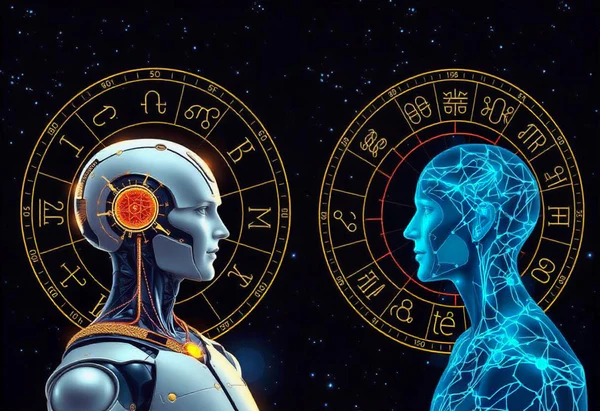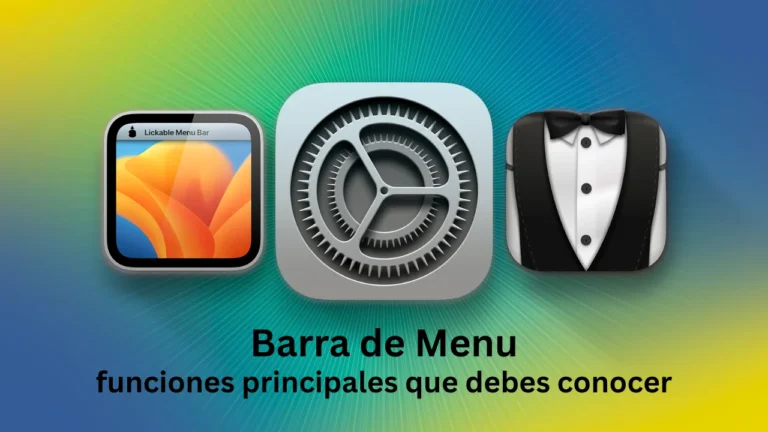Can AI Replace Human Astrologers? A Deep Dive into Tech vs Intuition

Astrology has frequently been at the intersection of meaning and mathematics. Interpretation is the telling of stories; planetary placements are merely numbers. Then comes artificial intelligence (AI) astrology, which can create forecasts on demand, cast your chart in milliseconds, and gradually learn your preferences. Is that impressive? It is, of course. Will it eventually take the position of human astrologers? That’s a fascinating question.
Astro AI’s current capabilities, its limitations as a discipline, and how a hybrid future—humans and machines—may produce the most powerful readings you’ve ever examined in this in-depth analysis.
But astrology isn’t just about speed and accuracy—it’s about connection. When a human astrologer reads your chart, the human astrologer tunes into nuances that no machine can assess: your tone of voice, the emotional undercurrent of your questions, the silence in between your words. AI astrology might be great at making sense of planetary placements, but can it pick up on the unarticulated fears behind a question about careers, or even the silent longing in a question about love? And that, ultimately, is the question.
What “AI astrology” actually is (and isn’t)?
AI astrology is not a personified cosmic oracle robot. It’s a compilation of technologies:
- Ephemerides & astronomy libraries to calculate chart data (positions, aspects, house cusps).
- Symbolic rule engines that encode classical & modern interpretations of astrological meanings (e.g., Mars sq Moon → tension + emotional volatility).
- Machine learning models that have learned from large datasets of astrological texts/readings and user input, helping to improve phrasing and personalisation.
- Conversational layers (chatbots, voice) that deliver readings in your preferred tone, honour follow-up questions, and retain context.
What it isn’t: An intuitive presence, ancestral context, or experiential living awareness. While an AI astrologer can see patterns on a large scale, they are unable to sense your presence in the room.
Where AI already outperforms humans
Let’s give credit where credit is due. Astro AI has true advantages:
- Calculation accuracy and speed: Instantaneous, arithmetic error-free computations of charts, return charts, progressed charts, and electional windows. It relieves people of the burden of calculating numbers.
- Reference area: One has access to millions of delineations, uncommon configurations, and cross-tradition notes (such as Vedic, psychological, and Hellenistic) at their fingertips. AI remembers libraries, but humans remember dozens.
- Consistent accuracy: A given transit won’t be “forgotten” on a hectic day. If the ruleset states “note Saturn transiting the IC”, it will note Saturn transiting the IC—every time!
- Customisation at scale: Preference learning strategies (“short and direct”, “spiritual tone”, “scientific tone”), time zone awareness, reminders, and longitudinal journaling that identifies patterns over months.
- Anytime access: Includes sliding costs, round-the-clock availability, and immediate follow-ups. “What’s the vibe this week?” is a simple inquiry that can be easily answered by consulting an AI astrologer.
- Scenario testing and simulations: Speculative scenarios are the lifeblood of electoral astrology. To maximise selected parameters (e.g., a powerful 10th house ruler, a dignified Moon, minimum malefic aspects), AI can already test (many) start times => dates.
Where AI struggles—and why it matters
1- Context past the table: Charts are signifiers; lives come along with a mess. Humans carry nuance about culture, family systems, and implicit restrictions. AI can make guesses; a human can ask and listen.
2. Pattern prioritising and intuition: Completely different priorities for two clients in the same placements. Using seemingly little details, like as voice cracks, pauses between phrases, or words that stick with the client, astrologers rank meanings. Syntactical patterns may be detectable by AI, but somatic patterns are not.
3-Ethics & boundaries in the moment: Sensitive topics—health, fertility, grief—call for exacting pacing and consideration of consent. Humans can slow down, check in, and recalibrate. AI may produce secure statements in places where humility matters.
4-Projection & relational healing: A session can be a mirror. Sometimes clients need a safe witness more than a prediction. The relational container—trust, kindness, sharing breath—is uniquely human.
5-Symbolism & cultures: Mars in Aries reads as a soldier, a dancer, a monk. Cultural and vocational nuance changes the meaning. AI will improve in this dimension—but lived context is still a human advantage.
“Intuition” under the microscope
- According to sceptics, intuition is biased. It’s informed pattern recognition + presence, according to practitioners. Both may be accurate.
- According to cognitive research, skilled readers develop “thin-slice” recognition. After years of charts and outcomes, quick, subconscious associations—often called intuition—are created.
- From a spiritual standpoint, intuition is used by some astrologers as subtle, emergent, and non-strictly inferential advice.
AI can generally recognise patterns but cannot recreate presence. The quality of a reading frequently comes through between the client’s rapid breathing and the astrologer’s careful inspection of that area. That hasn’t been replicated by any model yet.
Case studies: AI vs. human vs. hybrid
Scenario A: Day-to-day transit suggestions
- AI delivers. Prompt, consistent, customised nudges (“Mercury trines your natal Jupiter—good day for pitching or learning”).
- A human offers little that is unique other than possibly providing coaching.
Scenario B: Turning point in your career
- Humans deliver. Complex conversation about risk tolerance, family obligations, and identity shifts.
- AI can articulate timelines and possibilities, but will miss emotional calculus.
Scenario C: Electional timing (launch, surgery, wedding)
- The hybrid is the winner. Being a part of a small group changes all human roles. Humans discuss meaning, symbolism, and the feasibility of lifestyles, while AI evaluates thousands of options to satisfy technological requirements.
Scenario D: Relationship patterns
- Humans deliver. Composite charts and synastry reveal several susceptible areas. A skilled astrologer can prevent deterministic implications and establish psychological safety.
- Although AI is not able to sense actual time, it can be cautious when crafting language.
The Real Killer feature: Feedback Loops
One of the lesser-appreciated superpowers of AI astrology is structured feedback over time:
Transit-related daily journaling prompts (“Rate how focused you are 1-5”).
Periodic evaluations of how your experiences with productivity and mood correlated with planetary cycles.
“Hey, conflicts related to Mars had spikes around deadlines– Did you want to set and ritual to cool that?” Nudges that indicate recurring patterns.
Humans can do this for several clients. AI can do this for millions–and return insights that make every reading smarter (and with privacy-first design).
Ethics: Privacy, Consent, and Language Hygiene
If you identify as an AI astrologer, use your AI astrologer like you’d use a therapist’s notes:
- Data management: Where are the birth records stored? Does it have encryption? Is it possible to remove it?
- Consent: Do you use your prompts when training models with artificial intelligence? Is it possible to opt out?
- Guardrails: Refrain from using language that is absolute or biased (“guaranteed marriage in 2026”) and instead limit it to possibilities and conditions (“the conditions are favourable to develop partnerships”).
- Range: No financial, legal, medical, or directive foundations. Astrology describes a propensity and a timing; it never actually diagnoses or makes any assurances.
Humans need the guardrails too—but with the scale of AI, it amplifies the risk.
What AI Should Never Do (and what humans should never offload)
- Takeaway agency: Readings should give readers more choices, not fewer.
- Predict the details of the trauma: Timing tools should NOT be used to script trauma; rather, to highlight windows of stress.
- Override lived reality: Your lived experience wins if the reading and your lived experience contradict each other.
- Barter with weakness: Take a strict position against “paywall for salvation” strategies.
The centaur model: human beings + machines
The future is not ‘AI versus astrologers’. Imagine it in terms of the centaur model – chess grandmasters with computers as partners winning games.
What that looks like in practice:
- AI before a session: recognising uncommon configurations, summarising transits, visualisations, and asking you to reflect and question.
- During a session with a human: Developing rapport with you, identify topics of significance, presence (demonstrating feeling), and synthesing meaning together.
- AI after a session: Journaling highlights, reminders of dates involving planetary action, and articulating your next plans to make progress;
- A human after a session: personal integration services, help you design a personal ritual, and align your living; this maximises where machines have strengths (scale, structure, memory) and humans have strengths (presence, wisdom, care).
How to Choose: AI Astrologer, Human Astrologer or Both
Ultimately, if you are selecting between an AI astrologer, a human astrologer, or hybrid approach depends on what you’re looking for.
Choose an AI astrologer if you are looking primarily for speed, low-cost, and some quick feedback. AI does an impressive job of putting together natal charts, progressions and transit reports in under five minutes. If you want nice little reminders, data-driven timing markers, or tenderness in the form of simple questions, AI tools provide you with reliable and cost-effective options.
Choose a human astrologer if you are looking to have a quality, supportive space to effectively process multi-layered transitions. An excellent astrologer can provide you with a multi-faceted lens of your chart that is informed by both culture and personally experienced and lived. Human guidance provides us with the ability to co-research our life journey and integrate our lived experience with an astrologically informed perspective.
Choose both if you want the best of both worlds. A hybrid approach brings together the powerful precision of AI and the nuanced wisdom of a human astrologer. An example of hybrid astrology allows you to implement actionable plans, have conversations that connect directly to your everyday life, and have a data-informed framework that supports your own intuition. Hybrid astrology also allows you to map out a useful architecture for designing your own higher-quality, hybrid readings.
Three-Part Hybrid Astrology Flow
The next time you have a session—in-person or online—think about the flow like this:
Prepare with AI (15-20 mins): Pull your natal chart, progressions, and transits (3-6 months). Ask: “Please give me 5 themes that are strongest for timing signals, and also provide 3 gentle questions to sit with.” I will consider a couple of electoral openings for your goals within this session as your astrologer.
Meet with your astrologer (60-90 mins): Together, focus on one area where you feel mostly activated by your ego and/or energy. Associate your astrology with your present reality, and co-design an experiment (habit, ritual, or conversation) to integrate into the week.
Integrate with AI (10 mins per week): Journal to any of the provided AI prompts, and note any shifts. Assess whether you find it helpful or challenging to make the shifts. Adjust or check in as needed.
Astrology as a Conversation, Not a Rule
The objective is to utilise astrology as a reflective tool rather than to leave your decisions to the stars, regardless of whether you choose AI, a human astrologer, or both. While human astrologers contribute intuition, empathy, and cultural context, artificial intelligence (AI) can offer structure and consistency. When combined, they produce a well-rounded strategy that is accurate, individualised, and useful. Astrology is most effective when it is a conversation that helps you match insight with action rather than making decisions for you.






